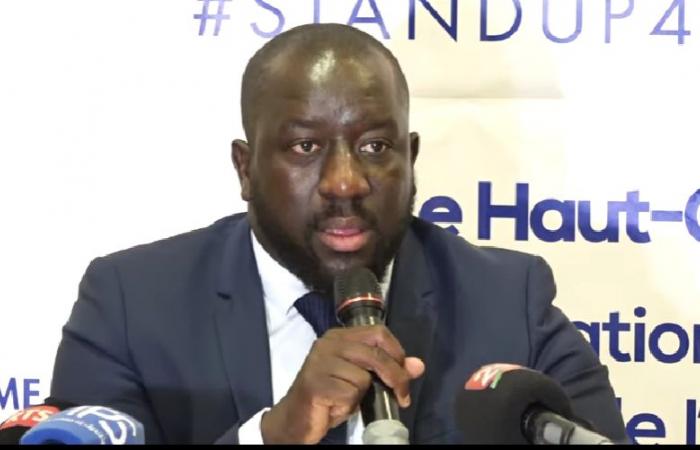The regulation of the media with a new body in the making to replace the CNRA, the materialization of the law on access to information and the decriminalization of press offenses were among other subjects discussed yesterday, Tuesday June 25, 2024, during the Day of reflection with the actors on “Media press freedom, whistleblowers and the safety of journalists” held in Dakar.
An opportunity for the supervisory minister, Alioune Sall, to reveal that the government of Senegal is working on a new media regulatory body, which would be able to take into account developments and the various specificities occurring in the press sector. “Today, 18 years after the advent of the CNRA (National Audiovisual Regulatory Council) and in a context where international standards, aimed at the decriminalization of press offenses and to which Senegal has always complied, are impose more and more. It is therefore crucial to have a new regulatory body which will take into account the different specificities of the world of media and social networks. declared Alioune Sall, in the APS. While the current Press Code already provides for the creation of the High Regulatory Authority for Audiovisual Communication (HARCA, which has so far been slow to see the light of day) to replace the National Regulatory and Audiovisual Council ( CNRA).
Before representatives of the United Nations Information Center (UNIC) based in Dakar and journalists’ organizations and associations, the Minister of Communication indicated that these planned reforms will also involve “a revision of certain provisions of the Press Code which have become obsolete”. While reaffirming the State’s commitment to transparent governance of the media sector, the Minister of Communication noted that the decriminalization of press offenses is not synonymous with the absence of sanctions.
“I also want to say that decriminalization does not mean absence of sanctions in the event of misconduct and I would not like to say that media professionals will not have to answer for their actions before the courts. However, it will be up to the actors involved in the reform process to define with the public authorities and CORED, through its Peer Tribunal whose remarkable work I salute, the nature of the sanctions to be put into force and which can be pecuniary, administrative or judicial. Until then, I remind you that the standard in force remains the 2017 Press Code. And I solemnly ask all press stakeholders to comply with it. he argued.
“IF THE GOVERNMENT WANTS GOOD PROTECTION OF WHISTLEBLOWERS, IT MUST FIRST ADOPT THE ACCESS TO INFORMATION LAW”
For Alioune Sall, Senegal remains attached to its tradition of respect for freedom of expression and contradictory debate. “The holding of this first day therefore comes at the right time because it follows the meeting of media players on the future and the supervision of the profession. Talking about supervision means talking about a legal and regulatory framework. Allow me, to this end, to recall that Senegal is closely attached to its tradition of respect for freedom of expression and contradictory debate in compliance with the standards in force. underlined the Minister of Communication.
Media players, for their part, have also invited the new authorities to materialize the law on access to information. “In his program, the President of the Republic had promised to put in place a law on access to information, public information, which gives citizens the right to request any public information from representatives of the State, under certain conditions, to increase the transparency and openness of government, with a view to allowing citizens to participate fully in the democratic process”, The President of the CJRS reminded Migui Marame Ndiaye.
And Mamadou Thior, the president of CORED, adds: “the new regime has clearly stated its desire to protect whistleblowers. However, journalists are the first whistleblowers, because they often expose cockroaches, risking their lives. If the government wants good protection for whistleblowers, it must first adopt, as the president of the Convention of Young Reporters said, the law on access to information. Because it will benefit all the citizens of this country. he indicated. A law which will constitute an important tool in the fight against disinformation.
ID






